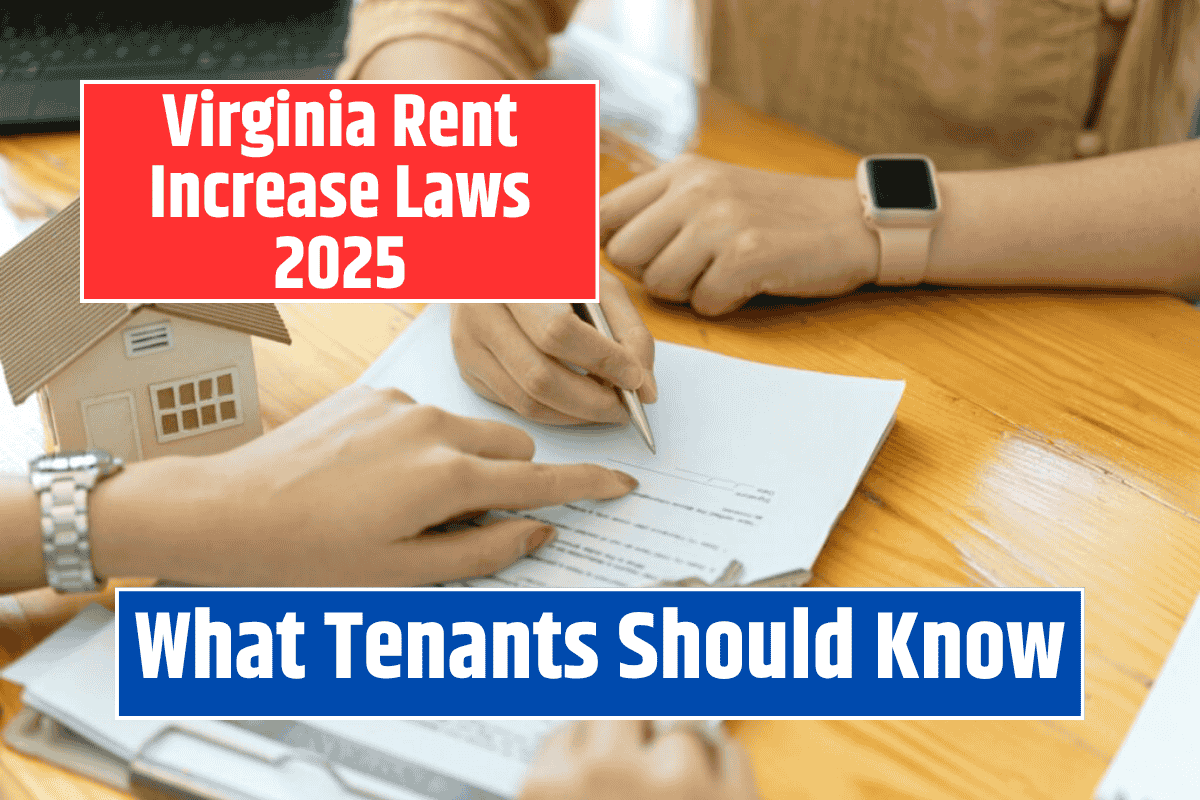In 2025, rent prices continue to be a hot topic across the U.S., and Virginia is no different. One of the most common reasons for disputes between landlords and tenants is rent increases. But the good news is, understanding Virginia’s rent laws can help both sides avoid confusion and stay within their rights.
This guide will explain whether Virginia has rent control, how much rent can be increased, how often it can be raised, and how much notice landlords must give. Whether you’re a tenant or a landlord, here’s what you need to know about rent increase laws in Virginia this year.
Does Virginia Have Rent Control?
No, Virginia does not have statewide rent control laws. This means landlords in Virginia can increase rent by any amount, as long as it is done legally and fairly.
However, the state also doesn’t stop local governments from creating their own rent control rules. That said, as of now, no Virginia cities or counties have active rent control policies.
This gives property owners more flexibility, but it also puts the responsibility on landlords to be fair and transparent when raising rents.
How Much Can a Landlord Raise the Rent in Virginia?
There’s no legal limit on how much a landlord can raise the rent. They can choose any amount they think is suitable, based on the current market. However, setting rent too high could make it harder to find or keep tenants.
Landlords are advised to check the average rent rates in their area and keep increases in line with those trends to stay competitive and avoid tenant complaints.
How Often Can Rent Be Increased?
In Virginia, landlords can increase rent only at the end of the lease term—unless the lease agreement includes a clause that allows rent increases during the lease.
So, during an active lease period (monthly, yearly, or weekly), rent cannot be increased mid-term unless the tenant agreed to it in writing beforehand.
Also, landlords cannot increase rent as punishment for tenants who file complaints, form tenant unions, or take legal action. This is considered retaliation, and it’s illegal.
Discrimination Rules: When Rent Can’t Be Raised
Landlords are not allowed to raise rent for discriminatory reasons. Both federal and Virginia state laws protect tenants from rent increases based on:
Race or ethnicity
Gender or sexual orientation
Religion or faith
National origin
Age or disability
Military status or source of income
Family status (e.g., having children)
If a tenant feels their rent was raised for any of these reasons, they have the right to file a complaint under the Fair Housing Act.
How Much Notice Must Be Given Before a Rent Increase?
The amount of notice depends on the type of lease:
Weekly lease – Landlord must give 7 days’ written notice
Monthly lease – Landlord must give 30 days’ written notice
Yearly lease – Rent can only be increased after the lease ends, with reasonable notice
The notice must clearly mention the amount of increase and the date it will take effect.
Virginia’s rent increase laws in 2025 remain landlord-friendly, with no statewide rent control and flexibility in setting prices. However, landlords must still follow the law by giving proper notice and avoiding discrimination or retaliation.
For tenants, it’s important to know your lease terms, stay updated with rental laws, and speak up if something doesn’t feel right. Open communication and legal awareness are key to keeping landlord-tenant relationships smooth and stress-free.












